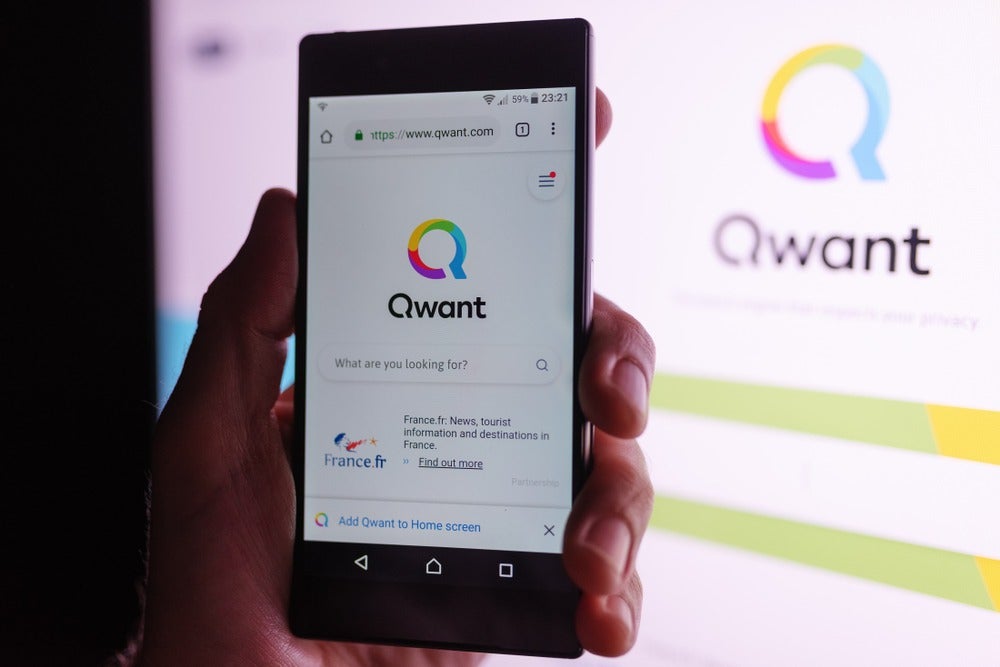
Google has been dominant in the European search engine market for two decades – Qwant is now attempting to disrupt that.
In 2018, Google generated revenues close to $137 billion and had over 1 billion active monthly users on each of its online platforms.
Search engines such as Baidu, Yandex, Yahoo, Naver and Bing have competed with Google within certain regions, but none have been able to compete against the tech giant globally.
An ‘ethical alternative’ to Google
Qwant is a search engine based in France and Germany which prides itself on security and respect for consumer privacy by not tracking users.
The firm is advertised as an ethical alternative to Google and has gained some attention from users who oppose Google’s data collection policies.
By 2021, the company plans to capture 5-10% of the European market – a large portion considering Google accounts for over 90% of the market.
How well do you really know your competitors?
Access the most comprehensive Company Profiles on the market, powered by GlobalData. Save hours of research. Gain competitive edge.

Thank you!
Your download email will arrive shortly
Not ready to buy yet? Download a free sample
We are confident about the unique quality of our Company Profiles. However, we want you to make the most beneficial decision for your business, so we offer a free sample that you can download by submitting the below form
By GlobalDataQwant does not expect to dethrone Google; however, if the company achieves its targets it will become the largest competitor to Google in Europe.
Qwant is developing a range of products targeting Google audiences
Qwant will rely on display adverts as the main source of revenue, just like Google which generates 85% of revenue from advertising.
For Qwant, its smaller audience numbers and lack of data analysis services puts the company at a significant disadvantage with advertisers. However, advertising spending generally follows online usage trends.
An announcement by the French National Assembly in October 2018 that all government computers and devices would adopt Qwant as the default search engine will help grow the company.
Products that compete directly against Google will help generate business. Qwant offers a space for researchers to share results and most recently, Qwant Maps has been developed to compete with GoogleMaps.
The company provides a junior search platform for children in order to protect them from age-sensitive content. Qwant has also produced a music search engine as well as commercial music and streaming service (Qobuz).
Demand for digital security presents opportunities for competitors
Ever since US whistleblower Edward Snowden leaked classified information in 2013 regarding the US government’s mass surveillance of personal data, the general public has become increasingly aware of their data protection rights and importance of online privacy.
A number of legislative and regulatory proposals concerning data protection were activated in 2018, including the European Union GDPR (General Data Protection Regulations) rules which have dramatically altered Google’s interpretation and application of consumer data.
In recent years, Google has been repeatedly scrutinised over the collection and misuse of personal data, as well as for abusing its market dominance as a search engine by giving an illegal advantage to another Google product, Android, which resulted in the company receiving a $5bn fine by the European Union competition regulators.
Suspicions over Google’s data analytic practices have helped to create a desire for a secure searching platform.






Related Company Profiles
Google LLC
Yandex NV
Baidu Inc
Yahoo Inc